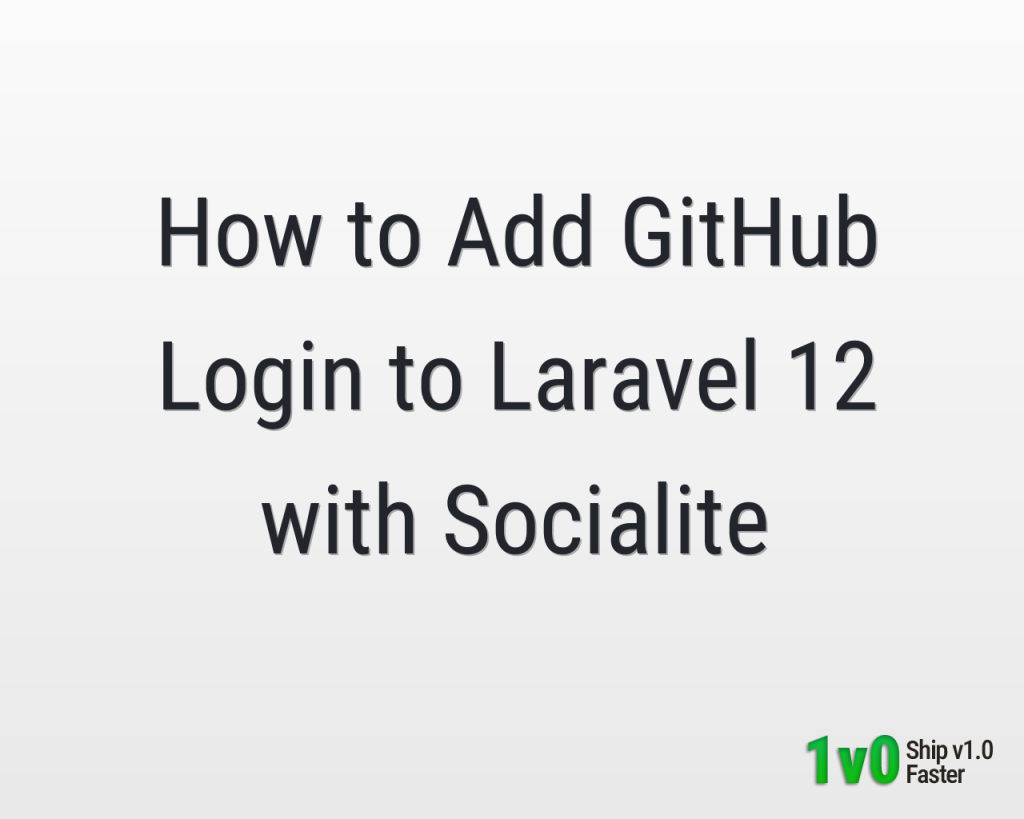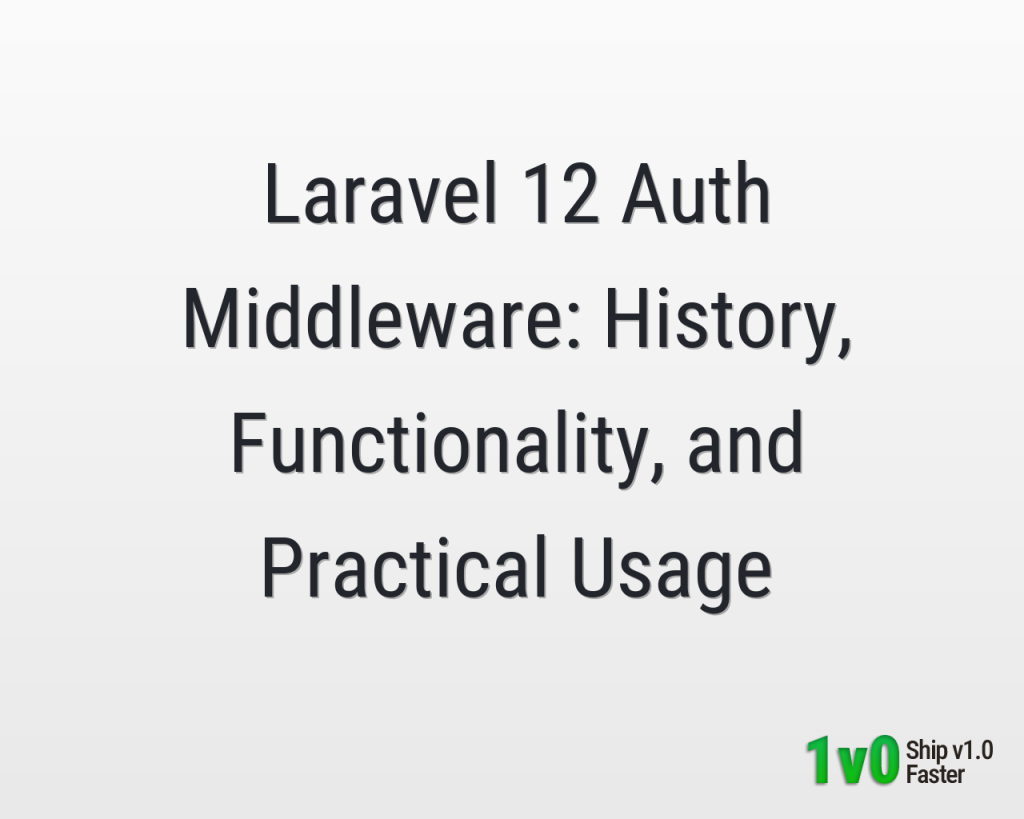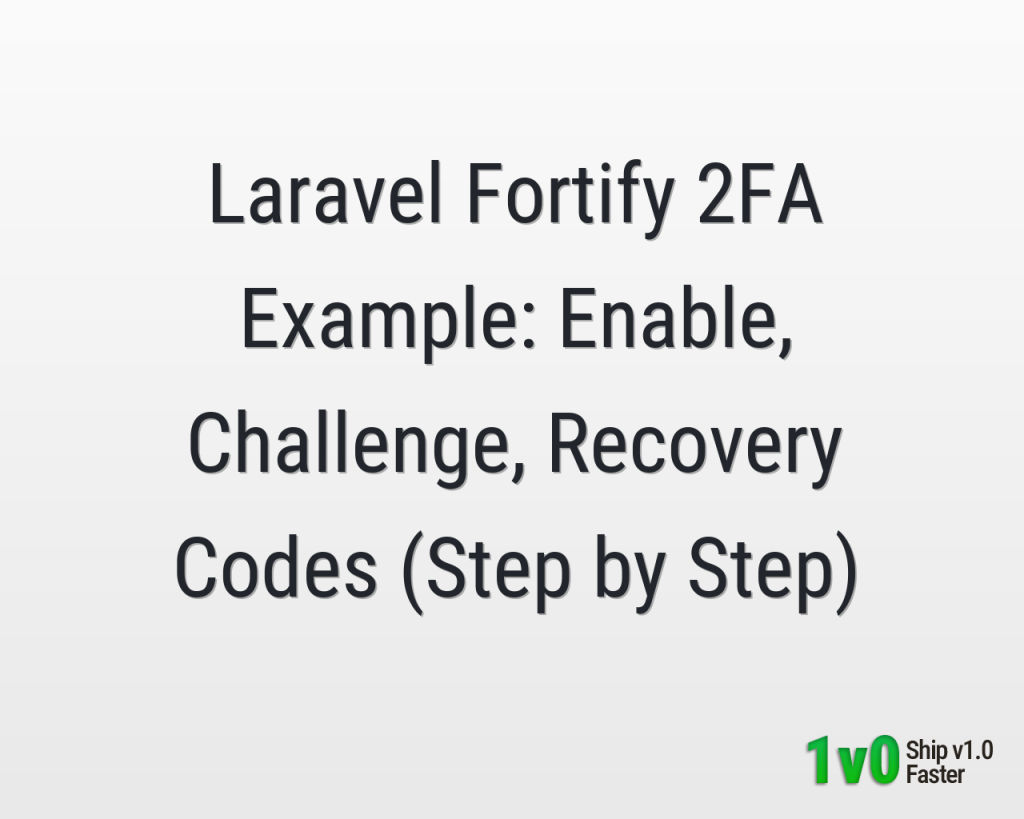When building applications for developers, a top UX win is to let users sign in with their existing GitHub account. It reduces friction, avoids extra passwords, and signals trust. In this guide, you’ll add GitHub Login to a Laravel 12 app using Socialite — with clear steps, fully explained code, and a simple UI button.
We’ll install Socialite, create a GitHub OAuth app, wire up environment variables and services config, add routes and a controller, update the users table, and place a polished “Login with GitHub” button. Optional sections cover requesting private emails, linking/unlinking GitHub from a user profile, and common error fixes.
1 – Install Socialite
Socialite is Laravel’s official OAuth client for providers such as GitHub, Google, and Facebook.
composer require laravel/socialiteCode language: Bash (bash)Laravel 12 uses package auto-discovery, so you don’t normally need to register anything. If auto-discovery is disabled, add the provider and alias manually:
// config/app.php (only if NOT auto-discovered)
'providers' => [
// ...
Laravel\Socialite\SocialiteServiceProvider::class,
],
'aliases' => [
// ...
'Socialite' => Laravel\Socialite\Facades\Socialite::class,
],Code language: PHP (php)2 – Create GitHub OAuth App
Register your app with GitHub to obtain a Client ID and Client Secret:
- Open GitHub → Settings → Developer settings → OAuth Apps.
- Click New OAuth App.
- Set:
- Homepage URL: e.g.
https://your-domain.com - Authorization callback URL:
https://your-domain.com/auth/github/callback
- Homepage URL: e.g.
- Save and copy your Client ID and Client Secret.
For local development, use:
http://localhost:8000/auth/github/callbackCode language: JavaScript (javascript)Callback URL must match exactly (protocol, domain, path) or GitHub will reject the redirect.
3 – Configure Laravel (.env & services.php)
Add credentials to your environment file so keys never live in source control:
# .env
GITHUB_CLIENT_ID=your_client_id_here
GITHUB_CLIENT_SECRET=your_client_secret_here
GITHUB_REDIRECT_URI=${APP_URL}/auth/github/callback
# Ensure these are correct for sessions/cookies:
APP_URL=http://localhost:8000
# SESSION_DOMAIN=.your-domain.com # if you use subdomainsCode language: Bash (bash)Tell Laravel where to read these values in config/services.php:
// config/services.php
'github' => [
'client_id' => env('GITHUB_CLIENT_ID'),
'client_secret' => env('GITHUB_CLIENT_SECRET'),
'redirect' => env('GITHUB_REDIRECT_URI'),
],Code language: PHP (php)Laravel will now use these secrets at runtime via config('services.github.*').
4 – Routes
We’ll add two guest-only routes: one to redirect the user to GitHub; one to handle the callback:
// routes/web.php
use App\Http\Controllers\Auth\GitHubController;
Route::middleware('guest')->group(function () {
Route::get('/auth/github/redirect', [GitHubController::class, 'redirect'])
->name('github.redirect');
Route::get('/auth/github/callback', [GitHubController::class, 'callback'])
->name('github.callback');
});Code language: PHP (php)/auth/github/redirect sends users to GitHub’s consent screen. After approval, GitHub redirects them to /auth/github/callback with a code Socialite exchanges for profile data.
5 – Users Table: store github_id (and avatar)
We’ll store the GitHub user ID and optional avatar URL so returning users can log in seamlessly.
php artisan make:migration add_github_columns_to_users_table --table=usersCode language: Bash (bash)// database/migrations/xxxx_xx_xx_xxxxxx_add_github_columns_to_users_table.php
use Illuminate\Database\Migrations\Migration;
use Illuminate\Database\Schema\Blueprint;
use Illuminate\Support\Facades\Schema;
return new class extends Migration {
public function up(): void {
Schema::table('users', function (Blueprint $table) {
$table->string('github_id')->nullable()->index();
$table->string('avatar')->nullable();
});
}
public function down(): void {
Schema::table('users', function (Blueprint $table) {
$table->dropColumn(['github_id','avatar']);
});
}
};Code language: PHP (php)php artisan migrateCode language: Bash (bash)This keeps a durable link between your local user and their GitHub identity.
6 – GitHub Controller
Create a controller to handle the redirect and callback. It logs in existing users or creates a new account as needed.
php artisan make:controller Auth/GitHubControllerCode language: Bash (bash)// app/Http/Controllers/Auth/GitHubController.php
namespace App\Http\Controllers\Auth;
use App\Http\Controllers\Controller;
use App\Models\User;
use Illuminate\Support\Facades\Auth;
use Illuminate\Support\Str;
use Laravel\Socialite\Facades\Socialite;
class GitHubController extends Controller
{
// Step 1: send user to GitHub
public function redirect()
{
// Request public profile + email (private emails require 'user:email' scope — see optional section)
return Socialite::driver('github')->redirect();
}
// Step 2: handle callback
public function callback()
{
$git = Socialite::driver('github')->user();
$email = $git->getEmail(); // may be null if hidden
$gitId = $git->getId();
$name = $git->getName() ?: $git->getNickname() ?: 'GitHub User';
$avatar = $git->getAvatar();
// A) Already linked
$user = User::where('github_id', $gitId)->first();
// B) Not linked but email matches an existing account — link it
if (! $user && $email) {
$user = User::where('email', $email)->first();
if ($user) {
$user->forceFill([
'github_id' => $gitId,
'avatar' => $user->avatar ?: $avatar,
])->save();
}
}
// C) No match — create a new local account
if (! $user) {
$user = User::create([
'name' => $name,
'email' => $email, // can be null if GitHub doesn't provide it
'password' => bcrypt(Str::random(32)),
'github_id' => $gitId,
'avatar' => $avatar,
]);
}
Auth::login($user, remember: true);
return redirect()->intended('/');
}
}Code language: PHP (php)This flow supports three scenarios: previously linked user, same-email user (auto-link), or brand-new user. You can swap “auto-link” with a confirmation screen if your policy requires explicit consent.
7 – UI: “Login with GitHub” Button
Add a clear call-to-action on your login page:
<a href="{{ route('github.redirect') }}" class="btn btn-dark w-100">
<i class="bi bi-github me-2"></i> Login with GitHub
</a>Code language: HTML, XML (xml)This simply hits the redirect route, takes the user to GitHub, and returns them to your app signed in.
8 – Optional: Request private emails (user:email scope)
Some users hide their email on GitHub. To retrieve private emails, request the user:email scope and use stateless() only if you understand the session tradeoffs.
// Redirect with scope
return Socialite::driver('github')
->scopes(['user:email'])
->redirect();
// Later in callback, iterate emails if primary is missing:
$git = Socialite::driver('github')->user();
$email = $git->getEmail();
if (! $email && isset($git->user['email'])) {
$email = $git->user['email'];
}
// Some SDKs expose emails array under $git->user['emails']Code language: PHP (php)Always handle the case where email remains null (e.g., prompt the user to add an email after first login).
9 – Optional: Link/Unlink GitHub from Account Settings
Let signed-in users connect or disconnect GitHub later. Protect routes with auth middleware and attach the github_id to the current user.
// routes/web.php (link & disconnect)
Route::middleware('auth')->group(function () {
Route::get('/account/github/connect', [GitHubController::class, 'redirect'])
->name('github.connect');
Route::post('/account/github/disconnect', function () {
auth()->user()->forceFill(['github_id' => null])->save();
return back()->with('status', 'GitHub disconnected.');
})->name('github.disconnect');
});Code language: PHP (php)In the callback, if auth()->check() is true, attach the github_id to the current user instead of logging in a different account. This prevents account takeovers.
10 – Common Issues & Fixes
- Redirect URI mismatch: Ensure the callback in GitHub settings equals
GITHUB_REDIRECT_URIexactly (protocol/host/path). - Invalid state / CSRF: Don’t use
stateless()unless building a pure API. Make sure sessions/cookies work (correctAPP_URL,SESSION_DOMAIN). - Email is null: Request
user:emailscope and still handlenullgracefully by prompting for an email post-login. - Subdomain login issues: Use a shared cookie domain, e.g.,
SESSION_DOMAIN=.your-domain.com.
Wrapping Up
You added a smooth “Login with GitHub” to Laravel 12 using Socialite: installed the package, created OAuth credentials, configured services, added routes and a controller, updated your users table, and shipped a clean UI button. Optional sections showed how to request private emails and how to let users link/unlink GitHub from their profile — production-friendly polish your users will appreciate.
What’s Next
- How to Add Google Login to a Laravel 12 App with Socialite — offer multiple social providers.
- Laravel Spatie Permissions: Step-by-Step Setup — assign roles/permissions after login.
- Implementing Passwordless Authentication in Laravel 12 — reduce password friction entirely.





0 Comments